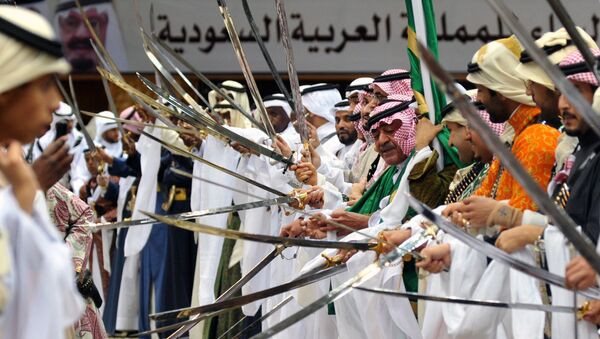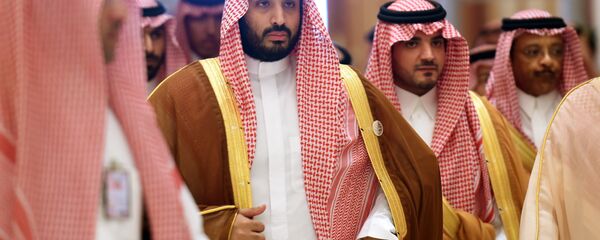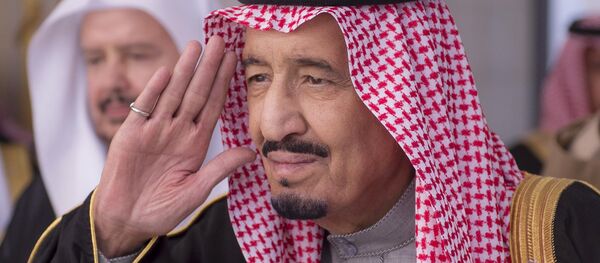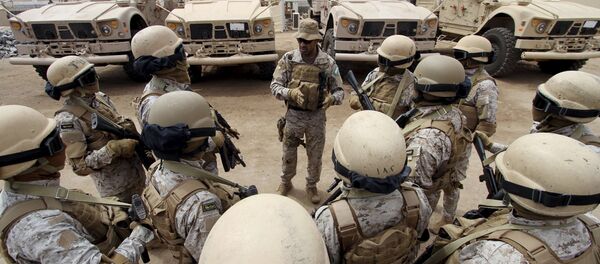Although Saudi Arabia wants to become the Middle Eastern hegemon with military forces second to none, it seems that Riyadh's ambitious bid for power bears little relation to reality.
"At the center of Saudi Arabia's current bid for regional dominance lies King Salman's muscular approach to foreign policy. This policy banks more on military might than on the use of diplomatic tools, cash or even religious influence, which Riyadh has traditionally employed to protect and promote Saudi interests," Dr. Mohammed Nuruzzaman, Associate Professor of International Relations at Gulf University for Science and Technology in West Mishref, Kuwait, writes in his article for The National Interest.
At the same time analysts from the Gulf Arab states regard Iran as the main stumbling block in the way of Riyadh. They have no scruples about calling Tehran literary the root of all "evil" in the Middle East.
"Iran is at the root of numerous security problems now plaguing the Middle East," Nawaf Obaid, a visiting fellow with Harvard Kennedy School's Belfer Center for Science and International Affairs, wrote in his March analysis for The National Interest.
"King Salman's views are steeped in Arab history, and he has no intention of allowing Iran, which seeks to give its minority Shia sect the upper hand in worldwide Islam, to disrupt 1,400 years of majority Sunni domination," Obaid insisted.
But is Saudi Arabia capable of outperforming Iran? At least, not now, Nuruzzaman believes.
"Saudi Arabia has its own fundamental weaknesses, mostly in its economic and military systems, to overcome before it can assert its regional dominance," the scholar explains.
As a result, the ongoing slump in oil prices has struck a blow to the country's economy.
To make the situation even more complicated, "the war on Yemen and support for the rebels in Syria have taken a toll on the Saudi economy," Nuruzzaman notes, pointing to the fact that Riyadh is spending $6 billion every month (or $200 million a day) on military operations in Yemen.
And it's a price the Saudi economy "can hardly afford for long," he stresses.
Secondly, Riyadh's military sector is also a subject of concern.
The country became the world's largest arms importer in 2014. Over the past five years, arms imports by Saudi Arabia rose by 275 percent. However, Riyadh's dependence on imported arms makes it vulnerable to pressure from exporters.
"The question is whether a state like Saudi Arabia can assert its military dominance on the regional scale based on imported arms, while its nemesis Iran has achieved remarkable self-sufficiency in armaments," the scholar notes.
On the other hand, Washington does not conceal its dissatisfaction with Riyadh's assertive foreign policy in the Middle East, saying that the Gulf kingdom wants "to drag the United States into grinding sectarian conflicts that sometimes had little to do with American interests."
To add insult to injury, the House of Saud is currently involved in covert inner struggle between potential successors to King Salman.
Meanwhile, some experts believe that the ruling family is facing yet another problem: Saudi Arabia's famous oil reserves are fading and the Gulf kingdom is at risk of running out of the commodity.
Given all these, Riyadh's bid for superiority in the Middle East resembles nothing so much as wishful thinking.




